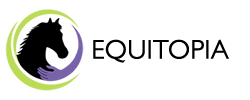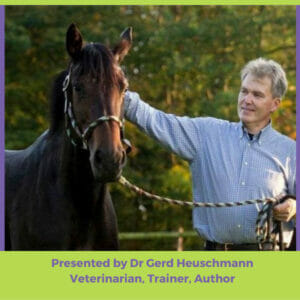Description
Better safety and performance, AND more enjoyment - the benefits of tracking and
optimizing sport horse welfare
What you will learn about on this webinar:
🥕The latest thinking about horse welfare.
🥕The relationship between our understanding of welfare and the choices we make in caring for and training our horses.
🥕 The benefits for owners and riders of improved horse welfare: better safety and performance, and greater enjoyment.
🥕 Practical strategies for monitoring horse welfare so owners can work towards achieving optimal welfare, and reap the benefits of improved safety, horse performance and rider satisfaction.
The challenge of keeping horses in optimal form is inevitable, equipping yourself with the knowledge required to implement a welfare-centered solution is optional.
Equitopia provides equine professionals who believe in welfare centric horsemanship, a one-stop-shop for research-based online courses and resources that you can trust.

This is your chance to gain practical strategies for monitoring and optimizing horse welfare,
ensuring a better experience for you and your horse.
Karen Luke is an equine welfare scientist and horse welfare advocate. She completed her PhD at Central Queensland University, where she studied the relationship between horse welfare, rider safety, and rider satisfaction.
Karen has led the way in developing a holistic approach to horse welfare, creating a framework that helps horse owners recognise previously invisible connections between them and their horse, and how these connections
can impact their horse’s welfare, safety and performance. This research highlights that improving horse welfare not only helps horses, but delivers meaningful benefits to the people who ride and care for them.
Karen works as an equine welfare and safety consultant, helping both individuals and organisations. She also hosts a successful podcast, Changing Rein, where she, along with her co-host, interviews a range of people connected to the horse industry, including academics, riders, trainers and journalists, to discuss all aspects of horse sport and racing with the goal of encouraging a more ethically sustainable industry with horse welfare at its
heart.
Karen has owned, ridden and competed horses much of her life and still has horses. She lives on a small horse property in the Yarra Valley, outside Melbourne, which she shares with six horses, three dogs and her family.
Once a keen amateur competitor in eventing, these days she prefers trail riding through the bush. In keeping with her holistic, systems approach to science, Karen’s work and advocacy is built on her desire to have a world where all species – plant, animal and human – thrive.




